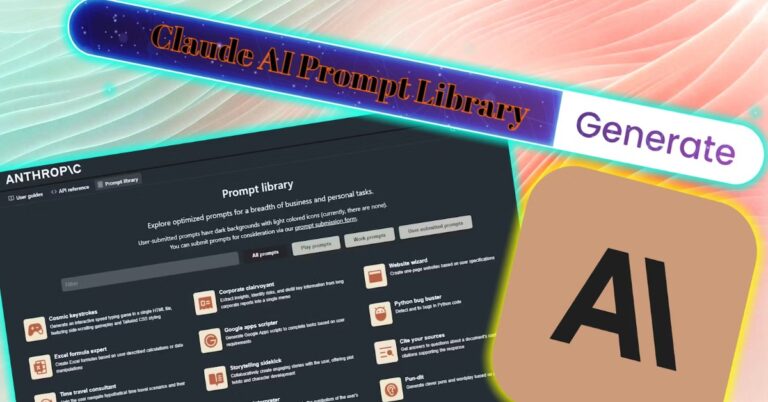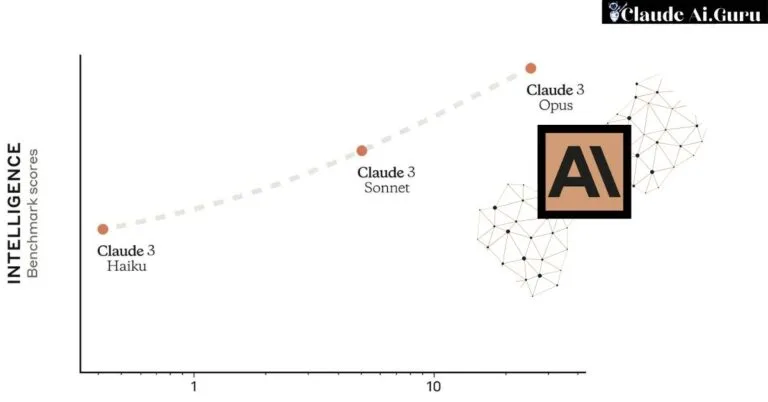Claude API Key: How to Get, Use & Pricing Guide (2025)
Claude by Anthropic has rapidly become one of the most sought after AI assistants in 2025, revolutionizing how developers and businesses integrate artificial intelligence into their applications.
Whether you’re looking to power a chatbot, enhance Janitor AI with advanced conversational capabilities, or build sophisticated AI driven tools, understanding how to get and use a Claude API key is essential.
This comprehensive guide will walk you through everything you need to know about obtaining your Anthropic API key, integrating it with popular platforms like Janitor AI, and understanding the current pricing structure.
By the end of this article, you’ll have all the information needed to start leveraging Claude’s powerful capabilities in your projects.
What You’ll Learn:
- ⚡ Step-by-step API key registration (5 minutes)
- 🔧 Janitor AI integration with troubleshooting
- 💰 Complete 2025 pricing breakdown with cost saving tips
- 🛡️ Security best practices and error solutions
- 📊 Claude vs competitor comparison
What is the Claude API?
The Claude API is Anthropic’s programmatic interface that allows developers to integrate Claude’s advanced AI models directly into their applications, websites, and services.
Unlike using Claude through the web interface, the API provides seamless, automated access to Claude’s capabilities for building custom solutions.
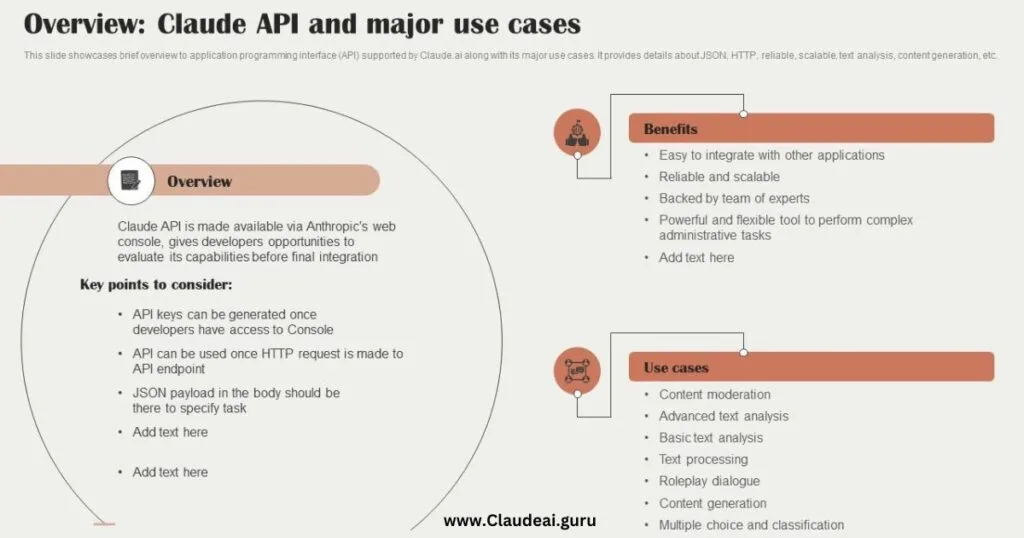
Claude stands out in the AI landscape for several key reasons. The model excels at nuanced conversation, complex reasoning, and maintaining context over long interactions.
It’s particularly known for its safety features and helpful, harmless responses, making it ideal for customer service applications, content creation tools, and educational platforms.
Key features of the Claude API include:
- Multiple model options: Access to different Claude variants optimized for various use cases and budgets
- Extensive context windows: Handle large documents and maintain long conversations effectively
- Advanced reasoning capabilities: Excel at analysis, problem solving, and creative tasks
- Built in safety measures: Designed to provide helpful responses while avoiding harmful content
- Flexible integration: Easy to implement in existing applications and workflows
Popular use cases for the Claude API span across industries. Content creators use it for writing assistance and idea generation. Customer service teams integrate it into chatbots for more natural interactions.
Developers leverage it for code analysis and documentation. Educational platforms use Claude to create personalized learning experiences.
How to Get a Claude API Key
Getting your Claude API key is a straightforward process, but there are a few important steps to ensure smooth access. Here’s your complete step by step guide to Anthropic API key registration:
Step 1: Create Your Anthropic Account
Visit the official Anthropic website and navigate to their API section. You’ll need to create an account using a valid email address.
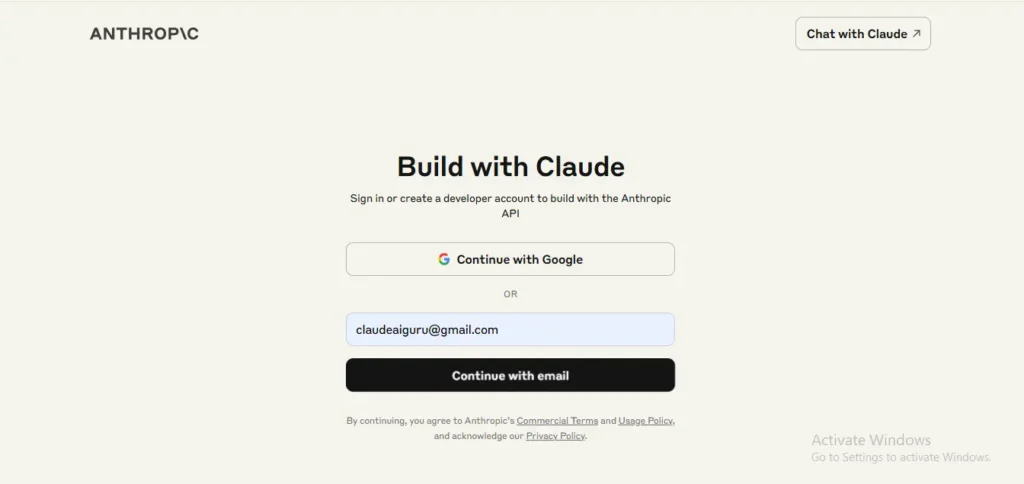
The registration process is quick and requires basic information like your name, email, and intended use case for the API.
Step 2: Account Verification
After registration, check your email for a verification link from Anthropic.

Click the link to verify your account. This step is crucial as unverified accounts cannot access API key generation features.
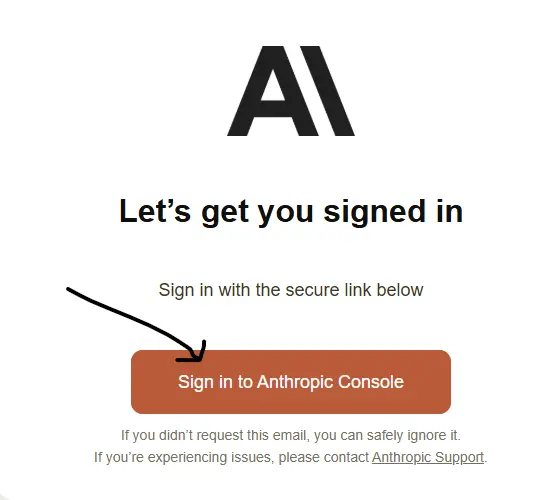
Step 3: Navigate to API Keys Section
Once logged into your Anthropic dashboard, look for the “API Keys” tab or section. This is typically found in your account settings or developer console area. The interface is user friendly and clearly labeled.
Step 4: Generate Your API Key
Click on “Create New API Key” or similar button. You’ll be prompted to name your key (helpful if you plan to use multiple keys for different projects) and potentially specify usage parameters. Your newly generated anthropic_api_key will be displayed once.
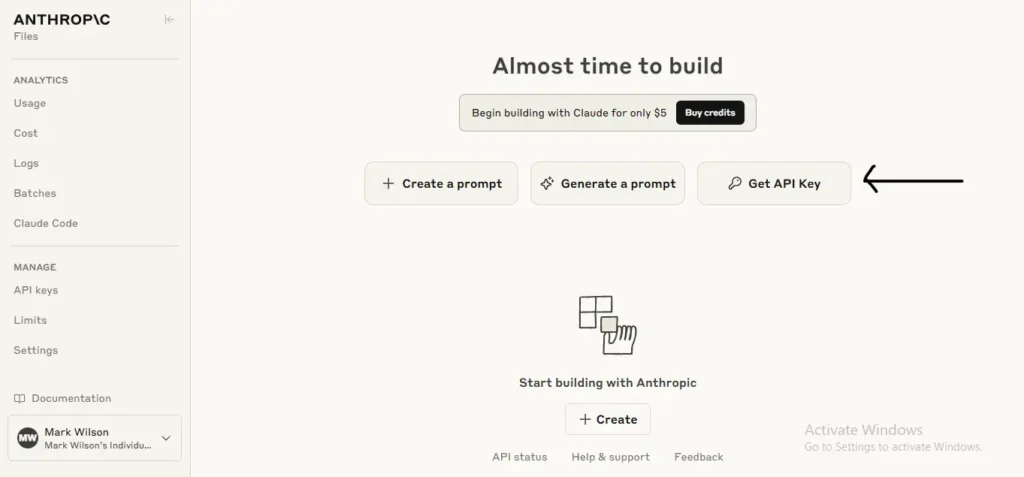
Important Security Tips:
- Copy and store your API key immediately for security reasons, most platforms only show the full key once
- Keep your API key confidential treat it like a password and never share it publicly
- Use environment variables in your applications rather than hardcoding the key
- Monitor your usage through the dashboard to track costs and prevent unexpected charges
Pro Tips for Smooth Access:
The registration process typically takes just a few minutes, though account approval might take longer during high demand periods. If you encounter issues, ensure you’re using a business email address if applying for commercial use.
Some users report faster approval when providing clear information about their intended use case.
Quick API Test (Python Example):
Once you have your API key, here’s a simple test to verify it works:
import requests
url = "https://api.anthropic.com/v1/messages"
headers = {
"x-api-key": "YOUR_API_KEY_HERE",
"anthropic-version": "2023-06-01",
"content-type": "application/json"
}
data = {
"model": "claude-3-5-sonnet-20241022",
"max_tokens": 100,
"messages": [{"role": "user", "content": "Hello, Claude!"}]
}
response = requests.post(url, headers=headers, json=data)
print(response.json())
Replace “YOUR_API_KEY_HERE” with your actual key. A successful response confirms your setup is working correctly.
Claude API Key for Janitor AI & Other Tools
One of the most popular applications for Claude API keys is integrating them with Janitor AI and similar platforms.
This integration unlocks enhanced conversational abilities and more sophisticated AI interactions for users seeking advanced chatbot experiences.
Setting Up Claude API with Janitor AI:
The process begins by accessing your Janitor AI account settings. Navigate to the API configuration section, which is typically found in the settings or preferences menu. Here, you’ll find options to configure different AI providers.
When setting up your claude api key janitor ai integration, select “Anthropic” or “Claude” from the available AI provider options.
Paste your API key into the designated field, ensuring there are no extra spaces or characters. The system will typically test the connection automatically.
Common Integration Steps:
- Access API Settings: Log into Janitor AI and find the API configuration section
- Select Provider: Choose Claude/Anthropic from the available options
- Enter Credentials: Paste your API key and configure any additional settings
- Test Connection: Verify the integration works before saving
- Configure Preferences: Set response length, temperature, and other parameters
Troubleshooting Common Issues:
Many users encounter similar problems when first setting up their Claude API integration. The most frequent issue is “Invalid API Key” errors, usually caused by copying extra characters or using an expired key.
Double check that you’ve copied the entire key correctly and that it’s still active in your Anthropic dashboard.
Connection timeouts can occur due to network issues or high API demand. If you experience persistent connection problems, try testing at different times of day or check Anthropic’s status page for any service interruptions.
Some users report rate limiting issues when making too many requests too quickly. The Claude API has usage limits, especially for free tier users. Monitor your usage in the Anthropic dashboard and consider upgrading if you consistently hit limits.
Other Popular Integration Platforms:
Beyond Janitor AI, Claude API keys work seamlessly with numerous other platforms. Many Discord bots, Telegram chatbots, and custom web applications support Claude integration. The key is ensuring the platform supports Anthropic’s API format and authentication methods.
Claude API Pricing (2025)
Understanding Claude API pricing is crucial for budgeting your AI integration projects.
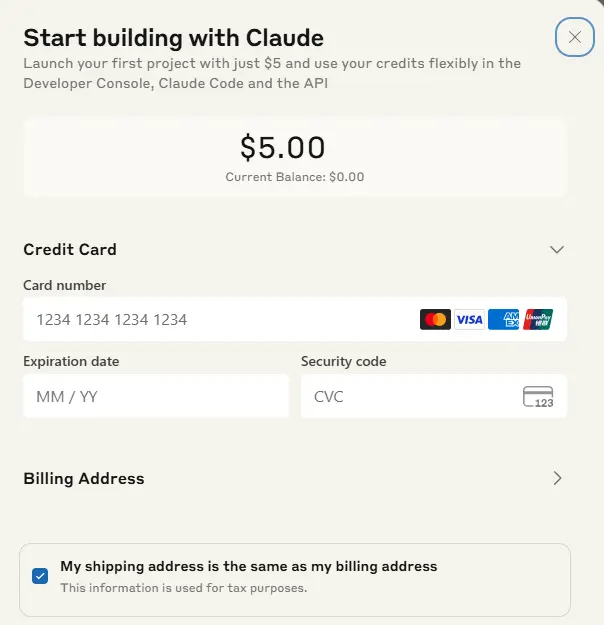
Anthropic uses a token based pricing model, where you pay for the amount of text processed by the API, measured in tokens (roughly equivalent to words or word fragments).
Current Claude API Pricing Structure:
Claude Sonnet 4 pricing starts at $3 per million input tokens and $15 per million output tokens, with up to 90% cost savings with prompt caching. This represents the latest generation of Claude models available through the API.
Detailed Pricing Breakdown:
- Claude 4 Sonnet: $3.00 per million input tokens / $15.00 per million output tokens
- Claude 4 Opus: Higher pricing tier for maximum capability (specific rates vary)
- Previous generation models: Generally lower cost but reduced capabilities
Understanding Token Usage:
Tokens are the basic unit of measurement for API usage. Approximately 750 words equal 1,000 tokens, though this varies based on language and complexity.
Both your input (prompts you send) and output (Claude’s responses) count toward your token usage.
Input tokens are typically cheaper than output tokens because generating responses requires more computational resources.
This pricing structure encourages efficient prompt design and helps users optimize their costs.
Cost Saving Features:
Anthropic offers up to 90% cost savings with prompt caching and 50% cost savings with batch processing.
Prompt caching is particularly valuable for applications that use similar prompts repeatedly, as cached portions don’t count toward token usage.
Batch processing allows you to submit multiple requests together at reduced rates, ideal for processing large datasets or generating content in bulk.
Claude vs Competitors Pricing Comparison:
| Feature | Claude 3.5 Sonnet | GPT-4 Turbo | Gemini Pro |
|---|---|---|---|
| Input Cost (per 1M tokens) | $3.00 | $10.00 | $0.50 |
| Output Cost (per 1M tokens) | $15.00 | $30.00 | $1.50 |
| Context Window | 200K tokens | 128K tokens | 32K tokens |
| Cost Savings Features | Prompt caching (90%) | None | Batch processing |
| Best For | Balanced performance | Maximum capability | Budget-friendly |
Comparing Value Proposition:
While Claude API pricing is competitive with other premium AI services, the value lies in its advanced capabilities and safety features.
For businesses requiring high quality, reliable AI responses, the pricing often justifies itself through improved user experiences and reduced need for manual oversight.
Many users find that Claude’s longer context windows and better instruction following actually reduce total costs by requiring fewer API calls to achieve desired results.
Free Tier and Credits:
Anthropic typically provides new users with free credits to test the API before committing to paid usage.
These credits allow you to experiment with different models and use cases to determine which pricing tier best fits your needs.
Common Questions About Claude API Key
Final Thoughts
The Claude API represents a powerful gateway to advanced AI capabilities that can transform your applications and workflows.
From enhancing Janitor AI experiences to building sophisticated chatbots and content generation tools, understanding how to obtain and use your Anthropic API key is essential for modern developers and AI enthusiasts.
The current pricing structure offers flexibility for various use cases, from experimental projects with free credits to enterprise scale implementations.
The key is understanding your usage patterns and choosing the right model and tier for your specific needs.
As we’ve covered, getting your Claude API key is straightforward, but proper security practices and integration techniques are crucial for success.
Whether you’re integrating with existing platforms like Janitor AI or building custom applications, the Claude API provides the foundation for creating engaging, intelligent user experiences.
The AI landscape continues evolving rapidly, and staying informed about pricing changes, new features, and best practices will help you maximize the value of your Claude API integration.
Regular monitoring of your usage and costs, combined with optimization techniques like prompt caching, can significantly improve your return on investment.
Ready to get started with Claude API? Check out the official Claude API documentation at docs.anthropic.com to begin your registration process and start building the next generation of AI powered applications.
With the right approach and understanding, your Claude API key can unlock tremendous possibilities for innovation and user engagement.
Quick Start Checklist:
- ✅ Create Anthropic account
- ✅ Generate and secure your API key
- ✅ Test with provided Python code
- ✅ Integrate with your chosen platform
- ✅ Monitor usage and optimize costs


